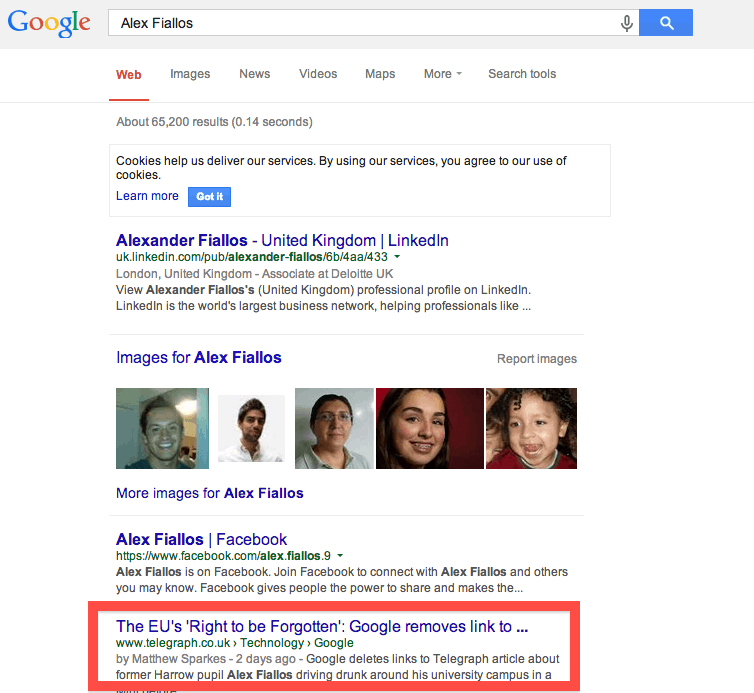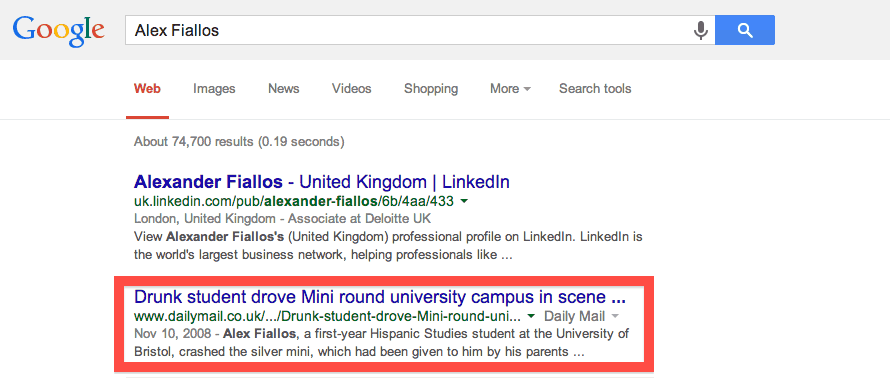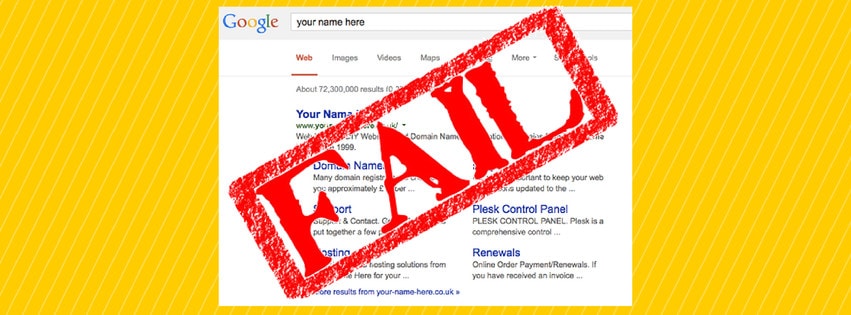In May 2014, after a controversial ruling in Spain, EU law dictated that residents have the “right to be forgotten” by Google and other search engines. In simple terms, this means that any EU resident can now ask Google to remove any search result for a name query:
certain users have the right to ask search engines like Google to remove results for queries that include the person’s name. To qualify, the results shown would need to be inadequate, irrelevant, no longer relevant, or excessive.
Since Google reluctantly put their removal form online, they have received 91,000 removal requests and erased 328,000 results from the SERPs. On the surface, simple results removal seems like an SEO dream for anyone in the reputation management business, right? WRONG.
Google added a key feature to its removal process: notifying the webmasters of removed results. And when these webmasters happen to be major news outlets like the BBC or Daily Mail, the notifications don’t go unreported. And the SEO nightmare begins.
Let’s take the example of Alex Fiallos, somebody I’d never have heard of if it wasn’t for the “right to be forgotten” law. The BBC reports today that 12 of its pages were recently removed from Google.co.uk results, one of which includes an article about an “18-year-old Bristol student convicted of drink-driving“. The BBC was kind enough not to re-name the offender in the new article, but other newspapers are less forgiving. The Telegraph decided to make an example of the story, reporting how “The EU’s ‘Right to be Forgotten’: Google removes link to Telegraph story about drunk ‘Italian Job’ stunt“. In a new Google.co.uk search, the Telegraph’s new piece features prominently, as result #3:

Under the new law, it would be impossible for Mr Fiallos to make another removal request about the new articles, because they cannot be proven to be “inadequate, irrelevant, no longer relevant, or excessive”.
Ethically speaking, it’s a tough one. Sure, we all did stupid stuff when we were 18, nobody got hurt in the incident and Mr Fiallos, now 24, has a job as “Financial Instruments, Treasury & Securitisation” at Deloitte to protect, according to his LinkedIn profile.
There are more controversial cases to consider, like that involving Patrick McVeigh, who was jailed in 2001 for a violent incident at an off-licence in Leeds. Once the story got taken down by Google, The Daily Mail gleefully re-reported it, drawing new attention to the crime.
The message from Google and web publishers is clear: they value the freedom of the press. While they may have to comply with EU law and remove listings, every effort is made to undermine the removal with a new onslaught of press coverage, resulting in an even worse SEO nightmare.
What’s more, the removal law only applies to EU-based search engines, like Google.co.uk or Google.it. Try searching on Google.com and the removed results appear as if by magic:

Anyone looking to erase their past online should think very carefully before proceeding with a Google removal request when it involves a major news website. My SEO advice? Get yourself some positive press coverage by doing something charitable, innovative or downright unusual instead.


